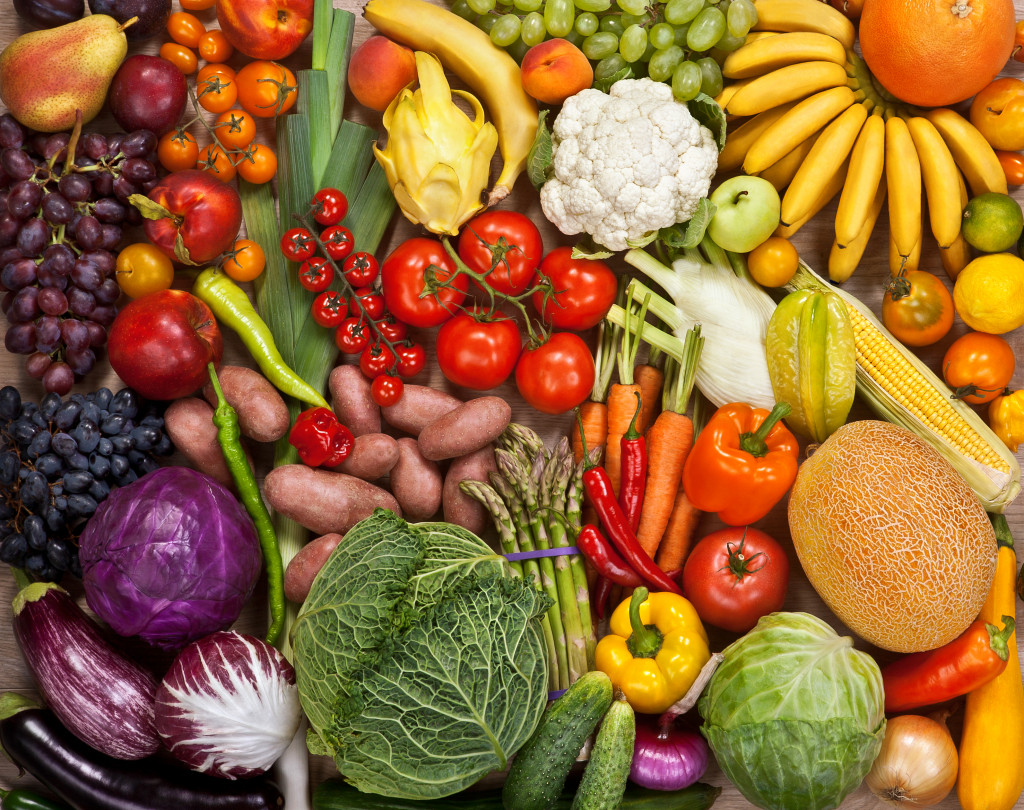- Eating whole foods is essential for transitioning to an organic lifestyle.
- Read food labels and avoid unnecessary chemicals when shopping.
- Educate yourself on sustainable farming practices such as organic agriculture and biodynamic agriculture.
- Incorporate organic, seasonal recipes into your diet to make meals more flavorful while reducing your carbon footprint.
- Consider organic beverages like herbal teas, fresh juices, and kombucha instead of commercially-produced drinks.
Organic foods are becoming increasingly popular as people seek healthier and more sustainable choices regarding their diet. An organic lifestyle incorporates food and products grown or raised without using chemical fertilizers or pesticides, antibiotics, hormones, genetic engineering, artificial flavors, or preservatives. This lifestyle has numerous health benefits and is also better for the environment. Here are five tips to help you start an organic diet and lifestyle.
1. Eat Whole Foods As Much As Possible
Whole foods are unprocessed or minimally processed ingredients, including fruits, vegetables, grains, legumes, nuts, and seeds. Eating more whole foods is great for transitioning to an organic lifestyle. These nourish your body with essential nutrients such as vitamins and minerals and provide fiber and other beneficial compounds like antioxidants, which can protect your cells from damage. Eating whole foods ensures that your diet is rich in nutrients and devoid of unhealthy chemicals or additives.
2. Read Food Labels and Avoid Unnecessary Chemicals
When transitioning to an organic lifestyle, it’s important to read food labels carefully. Many processed foods contain pesticides, preservatives, artificial colors, flavors, and sweeteners, which are unnecessary for a healthy diet. Instead of buying pre-packaged items with long ingredient lists full of unrecognizable words, opt for those containing simple ingredients made from plants or animals that you can recognize.
3. Educate Yourself On Sustainable Farming Practices

It’s essential to be aware of where your food is coming from when following an organic lifestyle. Educate yourself on sustainable farming practices such as organic agriculture, biodynamic agriculture, permaculture, and agroecology. These methods promote healthy soil and ecosystems by using natural fertilizers, crop rotation, and biodiversity to produce nutritious food without toxic chemicals or GMOs.
4. Incorporate Organic, Seasonal Recipes into Your Diet
Eating seasonally is another excellent way to ensure you’re eating nutrient-dense foods while supporting local farmers. Look for recipes designed with organic ingredients that are in season near you. This will make your meals more flavorful and reduce your carbon footprint by avoiding foods that need to travel long distances before reaching your plate. Additionally, cooking with seasonal ingredients can help you save money at the grocery store.
5. Consider Organic Beverages As Well
It’s easy to forget that beverages can also be organic! Many commercially-produced drinks contain added sugars and artificial sweeteners, which are unnecessary for your diet. Instead, opt for natural ingredients such as herbal teas, fresh juices, and kombucha from non-GMO sources. These will give you essential nutrients while avoiding unhealthy chemicals in conventional drinks. Opting for Sencha organic green tea is also an excellent option if you’re seeking a caffeine boost to replace your morning coffee. This green tea is packed with natural antioxidants and encourages an organic diet.
Commonly Asked Questions
What are the benefits of eating organic?

Eating organic can provide numerous health benefits, including a boost to your immune system, improved digestion, and better absorption of nutrients. Organic foods are also free from dangerous toxins such as pesticides and herbicides, which can be harmful to your body in the long run. Additionally, consuming organic food can help reduce environmental pollution by supporting sustainable farming practices.
Is it expensive to eat organic?
Eating an all-organic diet doesn’t have to be expensive! You can find deals on organic produce at farmers’ markets or online stores like AmazonFresh. Buying frozen fruits and vegetables is another great way to save money since they’re often cheaper than fresh options. Furthermore, you can also grow your own organic food in a small garden for added savings.
What about convenience foods like meals and snacks?
Fortunately, many organic brands offer convenience foods such as pre-made meals and snacks. Many grocery stores now sell organic options, or you can order online from companies like Organic Valley and Nature’s Path. These days, most restaurants also offer some organic menu items, so you don’t have to worry about going hungry if you’re on the go!
How do I make sure the food I’m buying is actually organic?
It can be hard to know whether the food is genuinely organic. The best way to verify this is by looking for the USDA Organic seal on food packaging. This means that the product is made from at least 95% organic ingredients and adheres to strict rules set by the government regarding production, handling, and labeling. You can also contact the manufacturer directly with any questions or concerns.
In Summary
By following these five tips, you’ll be well on your way to transitioning to an organic lifestyle. Eating whole foods, reading food labels carefully, educating yourself about sustainable farming practices, incorporating seasonal recipes into your diet, and considering organic beverages are all great ways to ensure your diet is healthy, natural, and sustainable. With a little research and effort, you’ll soon find yourself enjoying the benefits of an organic diet and lifestyle!

